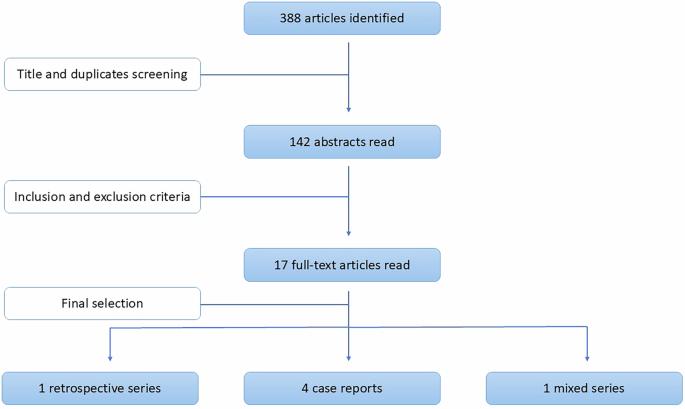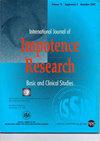阴茎癌切除后的性和泌尿系统重建:阴茎成形术。
IF 2.5
3区 医学
Q2 UROLOGY & NEPHROLOGY
引用次数: 0
摘要
阴茎癌切除后的阴茎成形术是一个复杂的重建挑战,需要恢复泌尿和性功能,同时解决解剖和心理后遗症。与性别确认生殖器成形术不同,该手术因先前的手术和潜在的解剖缺陷而复杂。然而,现有的数据有限,无法指导该队列的重建。这篇叙述性综述总结了阴茎切除术后阴茎成形术的现有证据。系统检索了6项相关研究,包括48例患者,随访时间从1到150个月不等。桡动脉游离皮瓣(RAP)和股前外侧皮瓣(ALTP)是首选的技术,各有其独特的优点和局限性。RAP提供了更好的触觉恢复,而ALTP减少了供体部位的发病率。并发症发生率高,特别是尿道狭窄和瘘管,发生率高达64.3%。尽管存在这些风险,但功能结果,包括站立排尿和性活动,是可以实现的,患者满意度仍然很高。挑战包括从跨性别群体中推断数据和管理社会心理问题。多学科方法对于优化患者选择、咨询和长期结果至关重要。需要进一步的研究来完善手术技术,改善并发症的处理,并探索创新的重建策略。本文章由计算机程序翻译,如有差异,请以英文原文为准。

Sexual and urological reconstruction following penectomy for penile cancer: phalloplasty
Phalloplasty following penectomy for penile cancer presents a complex reconstructive challenge, requiring restoration of urinary and sexual function while addressing anatomical and psychological sequelae. Unlike gender-affirming phalloplasty, this procedure is complicated by previous surgery and potential anatomical deficits. However, limited data exist to guide reconstruction in this cohort. This narrative review summarises available evidence on phalloplasty post-penectomy. A systematic search identified six relevant studies, including 48 patients, with follow-up ranging from 1 to 150 months. The radial artery free flap (RAP) and anterolateral thigh flap (ALTP) are the preferred techniques, each with distinct advantages and limitations. While RAP offers superior tactile recovery, ALTP reduces donor site morbidity. Complication rates are high, particularly urethral strictures and fistulae, affecting up to 64.3% of cases. Despite these risks, functional outcomes, including standing micturition and sexual activity, are achievable and patient satisfaction remains high. Challenges include extrapolating data from transgender cohorts and managing psychosocial concerns. A multidisciplinary approach is essential for optimising patient selection, counselling, and long-term outcomes. Further research is needed to refine surgical techniques, improve complication management, and explore innovative reconstructive strategies.
求助全文
通过发布文献求助,成功后即可免费获取论文全文。
去求助
来源期刊

International Journal of Impotence Research
医学-泌尿学与肾脏学
CiteScore
4.90
自引率
19.20%
发文量
140
审稿时长
>12 weeks
期刊介绍:
International Journal of Impotence Research: The Journal of Sexual Medicine addresses sexual medicine for both genders as an interdisciplinary field. This includes basic science researchers, urologists, endocrinologists, cardiologists, family practitioners, gynecologists, internists, neurologists, psychiatrists, psychologists, radiologists and other health care clinicians.
 求助内容:
求助内容: 应助结果提醒方式:
应助结果提醒方式:


